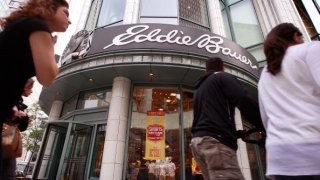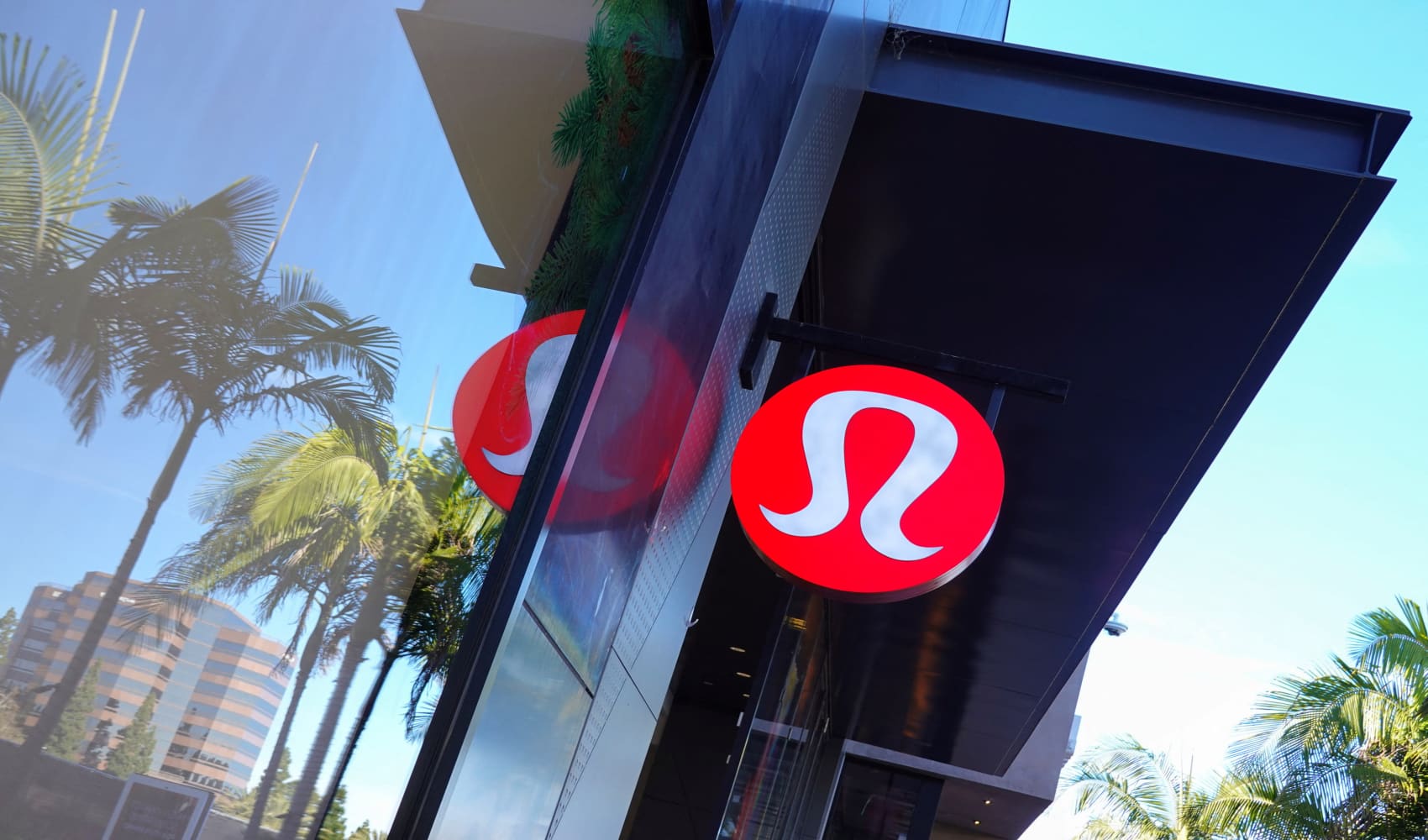
As patient numbers swell for those who have tested positive or are suspected of having coronavirus, hospitals and health-care facilities throughout the U.S. are experiencing a tight supply, if not an outright shortage, of personal protective equipment, including masks and gowns.
While more than 50,000 stores are closed, by CNBC’s count, many retailers and consumer-facing companies are using their knowledge and supplier base to do what they can to fill the void in equipment.
In some cases, retailers are shifting production lines from making apparel to manufacturing face masks and gowns. In other cases, retailers are routing their own supply of masks to the frontline health-care workers. Some are doing both.
Masks and gowns
Eddie Bauer’s headquarters are located in Bellevue, Washington, just east of Seattle and in the heart of the original U.S. epicenter for COVID-19 cases. The outdoor product retailer is shifting its typical production to make high-in-demand N95 masks as well as surgical masks. The inventory will be donated to Washington state through the state’s Department of Enterprise Services as early as next week. The company has a goal of 5,000 N95 masks in the first shipment, with 15,000 more by early April.
Hertz will offer free rental cars to healthcare workers to assist amid the coronavirus outbreak from CNBC.
"We’ve been a part of this [Seattle-area] community for 100 years, and we take our responsibility to our community seriously," said Damien Huang, Eddie Bauer’s president. "Our industry faces enormous challenges ahead, but none as consequential as the health of our communities."
Business
While Eddie Bauer’s efforts are a start, N95 masks are needed beyond Washington state.
Some hospitals in the U.S. are only accepting medical-grade equipment. But for those who are now taking nonmedical-grade personal protective gear, retailers are answering the call.
HanesBrands is part of a consortium of apparel manufacturers that have a contract with the U.S. federal government to produce cotton masks. HanesBrands aims to produce 1.5 million of these masks weekly, with the entire consortium to produce 5 million to 6 million each week, using HanesBrands’ design and patterns as the guide.
While the masks are not an equivalent replacement for the N95 mask, the apparel maker said the masks are "approved by the Federal Drug Administration for use when N95 masks are not required (or are unavailable)."
The Centers for Disease Control and Prevention has said if N95 masks or other surgical masks are not available, "healthcare personnel might use homemade masks (e.g. bandana, scarf) for care of patients with COVID-19 as a last resort" but warns "caution should be exercised when considering this option. Homemade masks should ideally be used in combination with a face shield that covers the entire front (that extends to the chin or below) and sides of the face."
HanesBrands isn’t the only one working with others to get the job done. High-end department store Neiman Marcus and craft and sewing retailer Joann are partnering to make masks, gowns and scrubs for frontline health-care workers. While these items will be nonmedical-grade, the designs follow medical guidelines provided by the Providence Hospital System in Washington.
Joann is providing the material to Neiman Marcus alterations facilities, where alterations specialists are working to create these items. The first shipment is expected to go out later this week, though the production quantities are still unknown.
"The fabric masks we are making with Neiman Marcus can be used to go over the N95 masks," said Chris DiTullio, Joann’s chief customer officer. "It’s important to protect and extend the life of the low supply of N95 right now."
He added that "hospitals are also going to give them to patients to help stem the virus spread."
San Francisco-based Gap has a twofold plan to help get critical materials to the health-care system in the fight against COVID-19. The parent company of Gap, Old Navy, Banana Republic, Athleta and others has built a small team with members from its different brands and functions, in conjunction with California hospitals, to use Gap’s connections in the global supply chain to get protective masks and gowns.
Gap is also working on solutions to use any excess garment production capacity to produce additional fabric masks and protective gear. The company told CNBC it is still "ironing out the details," but California Gov. Gavin Newsom named the retailer as one company working on solutions in a press conference Saturday.
Ralph Lauren is ramping up production of 250,000 masks and 25,000 isolation gowns with its U.S. manufacturing. Like the HanesBrands masks, those produced by Ralph Lauren meet FDA standards.
Luxury outerwear maker Canada Goose, best known for its $1,000 parkas, will begin to manufacture scrubs and gowns that will be donated to medical professionals. The production will start at two of its previously closed Canadian manufacturing facilities next week, with 50 workers at each location. The scrubs and gowns will be donated to local health-care workers.
"Our employees are ready, willing and able to help, and that’s what we’re doing. It’s the Canadian thing to do," said Canada Goose CEO Dani Reiss. Reiss is directing his salary for three months to a fund for employees affected by its store and manufacturing closures.
108-year-old retailer L.L. Bean has been through the Great Depression, World War II and the financial crisis and is ready to help the medical community fight COVID-19. L.L. Beanis using material usually meant for its dog-bed liners to make masks currently being tested by Massachusetts Institute of Technology.
"As a direct-to-consumer company, our manufacturing and fulfillment teams are highly skilled and innovative at creating, constructing and distributing anything we throw at them, and they care deeply about doing the right thing, so sacrificing the production of Bean Boots and Boat & Totes to lend a critical hand making medical masks, gowns and booties is exactly what they wanted to do," Steve Smith, president and CEO of L.L.Bean, told CNBC.
Redirecting supply
A number of retailers that typically sell N95 masks or other protective gear are working on routing any available supply to the frontline health-care workers.
Target CEO Brian Cornell said on a media call that the retailer is routing any supply of the masks it has access to to medical professionals, after initially letting it go to stores for consumers to purchase in Washington state "in error," according to the retailer.
Lowe’s is donating $10 million of "essential protective products" to medical professionals.Home Depot has a special program prioritizing its supplies for hospitals and first responders.
This story first appeared on CNBC.com. More from CNBC:



